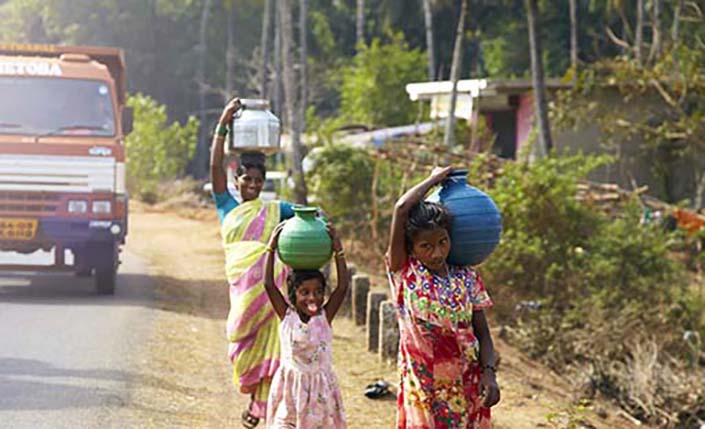Water-insecure households are particularly vulnerable to COVID-19

For people who do not have easy access to safe drinking water, maintaining personal hygiene and physical distancing to stem the global outbreak of COVID-19 is no simple task.
Water insecurity — which is a lack of access to affordable, adequate, reliable, and safe drinking water — can make following safety precautions nearly impossible, said Wendy Jepson, university professor in the Department of Geography at Texas A&M University and a co-author of a recent paper on these problems.
“Water-insecure households in low- and middle-income countries are particularly vulnerable to COVID-19, as they often rely on water sources for daily life that precludes social distancing measures,” Jepson said. “Reliance on water fetching, in particular, increases risk. And for some, the lack of water for adequate hygiene further compounds vulnerability.”
The researchers’ analysis was recently published in the Journal of Global Health. Led by Justin Stoler, University of Miami associate professor of geography and public health sciences, the paper was co-authored by Jepson and Amber Wutich, Arizona State University,
“Inadequate water security can be a multiplier effect for COVID-19 risk and lead to more severe cases,” Stoler said.
The researchers described how inadequate water access increases the risk for COVID-19 in many ways beyond limiting handwashing. Stringent physical distancing measures imposed as a result of COVID-19 are not always compatible with the realities of people living in the most impoverished regions of the world — such as sub-Saharan Africa and South Asia — who often obtain water from outside the home.
Cities with high population densities and urban poverty are areas with compounded risks and likely COVID-19 hot spots, the researchers said.
“Poverty and inequality, which correlates with water insecurity, further deepen COVID-19 risk and disproportionately burden the most vulnerable,” Jepson said.
Typical social distancing measures that might be taken for granted in the United States will be even more challenging to follow for families living without basic water and sanitation services, they said. When people experience water insecurity, it becomes more challenging for them to collect water needed for basic personal hygiene, such as handwashing. And, it is difficult for them to have enough water to sanitize surfaces.
These problems also exist in the U.S., in places like the Navajo Nation, where many live without running water. And in under-resourced areas, some low-income residents who have lost jobs have had their water service shut off because they can’t pay the bill.

